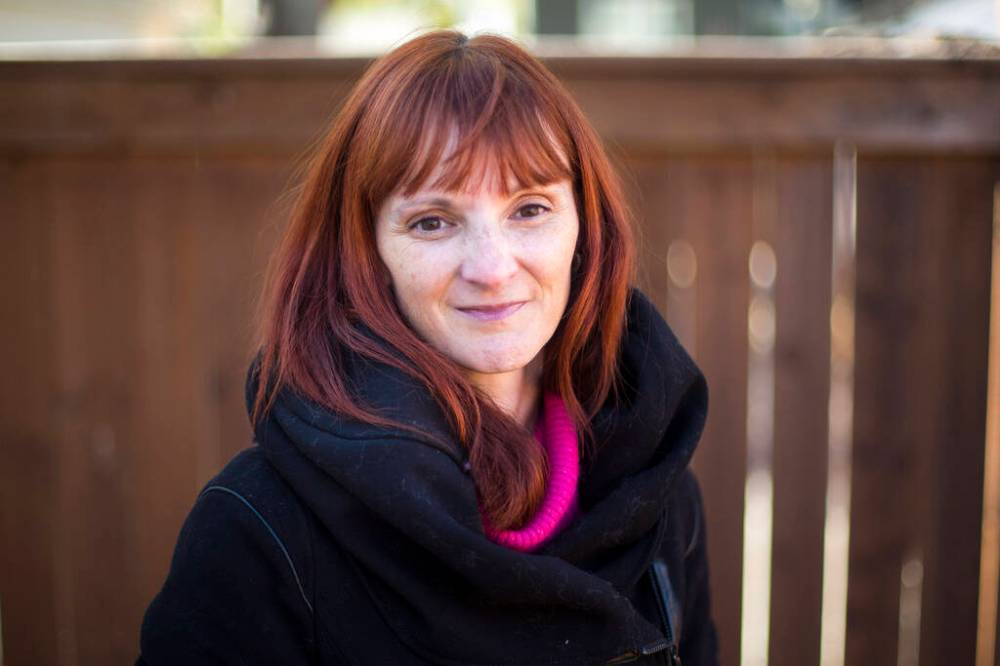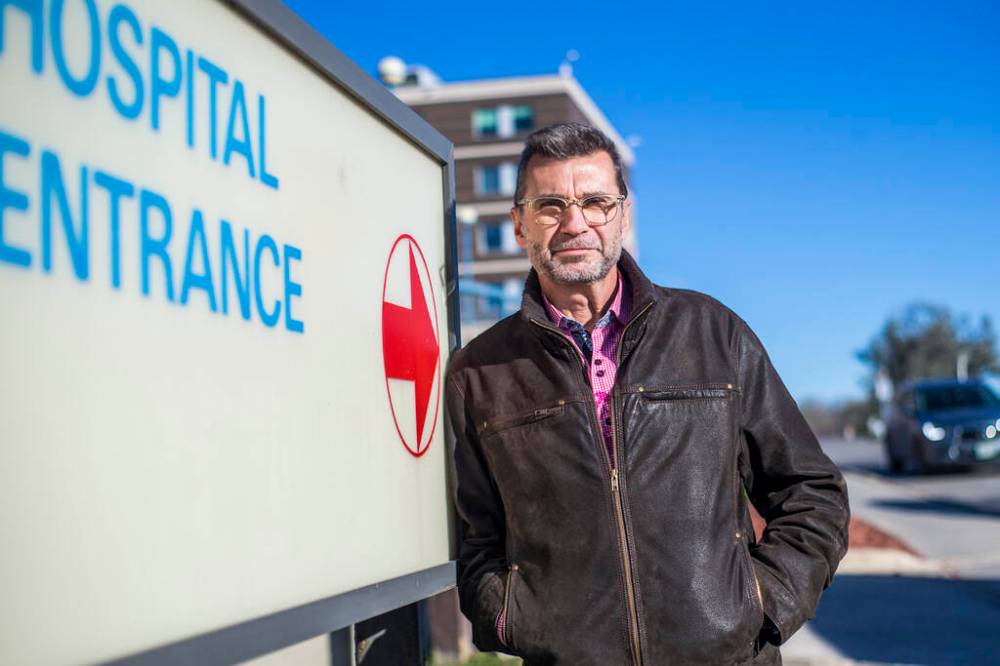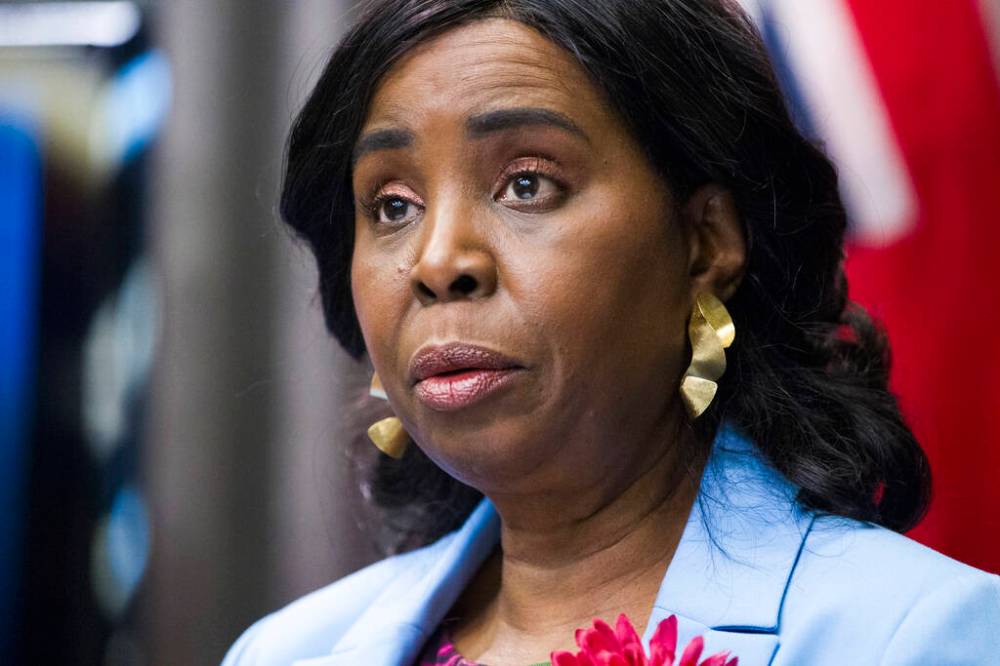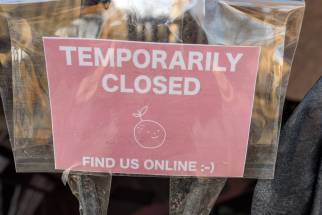Manitobans ‘living in the dark’ with COVID risk, experts fear Province’s decision to reduce data collection, reporting leaves population ‘flying blind’
Read this article for free:
or
Already have an account? Log in here »
To continue reading, please subscribe:
Monthly Digital Subscription
$0 for the first 4 weeks*
- Enjoy unlimited reading on winnipegfreepress.com
- Read the E-Edition, our digital replica newspaper
- Access News Break, our award-winning app
- Play interactive puzzles
*No charge for 4 weeks then price increases to the regular rate of $19.00 plus GST every four weeks. Offer available to new and qualified returning subscribers only. Cancel any time.
Monthly Digital Subscription
$4.75/week*
- Enjoy unlimited reading on winnipegfreepress.com
- Read the E-Edition, our digital replica newspaper
- Access News Break, our award-winning app
- Play interactive puzzles
*Billed as $19 plus GST every four weeks. Cancel any time.
To continue reading, please subscribe:
Add Free Press access to your Brandon Sun subscription for only an additional
$1 for the first 4 weeks*
*Your next subscription payment will increase by $1.00 and you will be charged $16.99 plus GST for four weeks. After four weeks, your payment will increase to $23.99 plus GST every four weeks.
Read unlimited articles for free today:
or
Already have an account? Log in here »
Hey there, time traveller!
This article was published 28/03/2022 (1355 days ago), so information in it may no longer be current.
Manitobans and their health-care system are vulnerable to a sneak attack from another devastating COVID-19 wave after the province cut back on virus data collection and reporting, experts warn.
The government has ditched weekday updates of its coronavirus dashboard, which contained case counts, the positivity rate, hospitalizations and deaths, in favour of weekly epidemiology reports.
As the government lifted all of its restrictions earlier this month, chief provincial public health officer Dr. Brent Roussin encouraged Manitobans to assess their own personal risk going forward.
But Manitobans are unable to do that without transparency from the government amid limited testing and a lack of contact tracing, said Dr. Julie Lajoie, a research associate working in virology and immunology at the University of Manitoba.
“We are living in the dark in terms of what is happening with COVID in Manitoba,” said Lajoie.

Based on upward trends in Quebec and Ontario and anecdotal evidence, she suspects infections are rising in Manitoba and is expecting a fifth wave to hit the province.
“I think there is no way we’re not going to see it,” she said. “It is coming or it is already on us.”
However, it is difficult to know the true scale of COVID in Manitoba and to predict a new wave without reliable data, she said, adding case counts are being underreported because access to PCR tests is limited and rapid test results are not tallied up.
A lag means hospitalization and municipal wastewater data are not as useful, she said.
Wastewater trends up to March 13 were released Monday by the Public Health Agency of Canada. The province insists it cannot release that data because it is “owned, collected and posted by the National Microbiology Lab.”
“I think there is no way we’re not going to see it. It is coming or it is already on us.” – Dr. Julie Lajoie
Lajoie said one of the main indicators for Manitoba is what’s happening in other provinces. Quebec appears to be heading into a sixth wave, and Ontario’s positivity rate has jumped to its highest level since January, when the Omicron variant’s wave was peaking.
Both provinces reported a decrease in intensive-care admissions Monday.
“We can only rely on what’s happening around us,” said Lajoie. “We have to take into consideration that that’s happening in Manitoba, as well.”
Without data that is properly collected and analyzed, it is impossible to identify trends and intervene before it is too late, warned Winnipeg critical-care physician Dr. Doug Eyolfson.
“It’s dangerous. The health system can’t react to a situation if it doesn’t know what the trends are,” said Eyolfson, a former Liberal member of Parliament. “The only indicator we have right now is hospitalization rates, and that’s a lagging indicator.”

In a COVID recovery plan published March 15 — the day restrictions were lifted — Shared Health said it was preparing for a potential increase in virus transmission and hospital admissions.
As of last Thursday, eight of Winnipeg’s 39 long-term care homes had active COVID outbreaks, the Winnipeg Regional Health Authority’s website stated Monday.
Eyolfson, who works at Grace Hospital, said he is still seeing COVID cases, but the numbers aren’t as high as they were during the previous wave.
He said the province’s decision to ditch its vaccine mandate for non-essential businesses March 1 and its mask mandate for indoor public places March 15 was “premature.”
“I’m seeing less and less mask use everywhere I go now,” he said.” The phrase, ‘living with the virus’ sounds good to say, but, unfortunately, people are still dying with the virus.”

Health Minister Audrey Gordon defended the government’s data collection and reporting methods, insisting the province is providing sufficient information and will provide specific data requested by media.
She said the province continues to see a “downward trend,” with eight of 19 intensive-care unit cases “active” as of Monday.
The government is making rapid antigen tests available at public places such as libraries and grocery stores, and people who receive a positive test result should call their physician or Health Links for information, she said.
“I don’t think we have misled Manitobans in that we have stated that the new cases are, at times, underreported because individuals who are, like myself, triple-vaccinated, if they test positive their symptoms might be mild,” Gordon said while visiting a new ambulance station in Portage la Prairie.
She urged people to stay home if they feel ill.
“What I’m hearing is that most of the cases are mild to moderate symptoms and individuals are able to manage those symptoms very safely at home and with the care of their health-care provider.” – Health Minister Audrey Gordon
“What I’m hearing is that most of the cases are mild to moderate symptoms and individuals are able to manage those symptoms very safely at home and with the care of their health-care provider,” said Gordon.
Manitoba’s virtual COVID outpatient program has saved “many, many hospital days” by helping people to manage their symptoms at home, she said.
NDP health critic Uzoma Asagwara said Manitobans need access to “clear and transparent public health data” to help them make informed decisions about staying safe.
“With hospitals preparing for a surge in cases and public-health measures removed, right now seems like a bad time to leave families in the dark. The PCs should be sharing more info with Manitobans, not less,” said Asagwara.
Liberal Leader Dougald Lamont claims the province hasn’t learned from past mistakes.
“We need easy-to-reach PCR testing across the province, contact tracing, wastewater testing and reporting, daily updates, free masks, and vaccines and boosters need to be readily available for everyone. This would actually blunt the next wave. Instead, we’re flying blind.” – Liberal Leader Dougald Lamont
“It’s scary, because the Stefanson PCs actually seem to be going out of their way to be as unprepared as possible, making another wave of COVID more likely,” he said. “The new Omicron (subvariant, known as BA.2) is even more infectious than the last. We need easy-to-reach PCR testing across the province, contact tracing, wastewater testing and reporting, daily updates, free masks, and vaccines and boosters need to be readily available for everyone. This would actually blunt the next wave. Instead, we’re flying blind.”
Manitoba can “live with the virus” and avoid shutting down sectors by keeping precautions such as a mask mandate for indoor public places, improved ventilation in schools and daycares, and a mandatory self-isolation period for people who test positive, said Lajoie.
These are things that can help to reduce the spread of the virus, ease pressure on the health-care system and prevent cases of long COVID, she said.
“It’s simple action and it will make a really big difference in the long run,” she said. “We’re all tired of COVID, but COVID is not tired of us. We still need to be careful.”
Dr. Nazeem Muhajarine, a community health and epidemiology professor at the University of Saskatchewan, said the government’s approach is not a good way to manage the pandemic.
“We are really flying blind these days without regular reporting and detailed reporting of COVID-19 numbers. How could we assess our own risk without data given or shown to us? It’s a no-win situation.” – Dr. Nazeem Muhajarine
“We are really flying blind these days without regular reporting and detailed reporting of COVID-19 numbers,” said Muhajarine. “How could we assess our own risk without data given or shown to us? It’s a no-win situation.”
Muhajarine is not convinced COVID-19 has become endemic, as hospitalization rates are higher than expected and the more infectious Omicron strain circulates in the community.
Manitobans have been encouraged to get three doses of a COVID vaccine to protect themselves against Omicron and any future variants that are highly contagious.
“(Two) is still good to prevent severe infection, but we know against Omicron that a third dose is really needed,” Lajoie said.
As of Monday, 44.7 per cent of eligible Manitobans had received three shots.
So far, only people 12 and older with weakened immune systems are being encouraged to get a fourth dose.
— With files from Danielle Da Silva
chris.kitching@freepress.mb.ca
Twitter: @chriskitching
As a general assignment reporter, Chris covers a little bit of everything for the Free Press.
Our newsroom depends on a growing audience of readers to power our journalism. If you are not a paid reader, please consider becoming a subscriber.
Our newsroom depends on its audience of readers to power our journalism. Thank you for your support.
History
Updated on Monday, March 28, 2022 11:49 PM CDT: Removes unneeded word "the" from sentence








